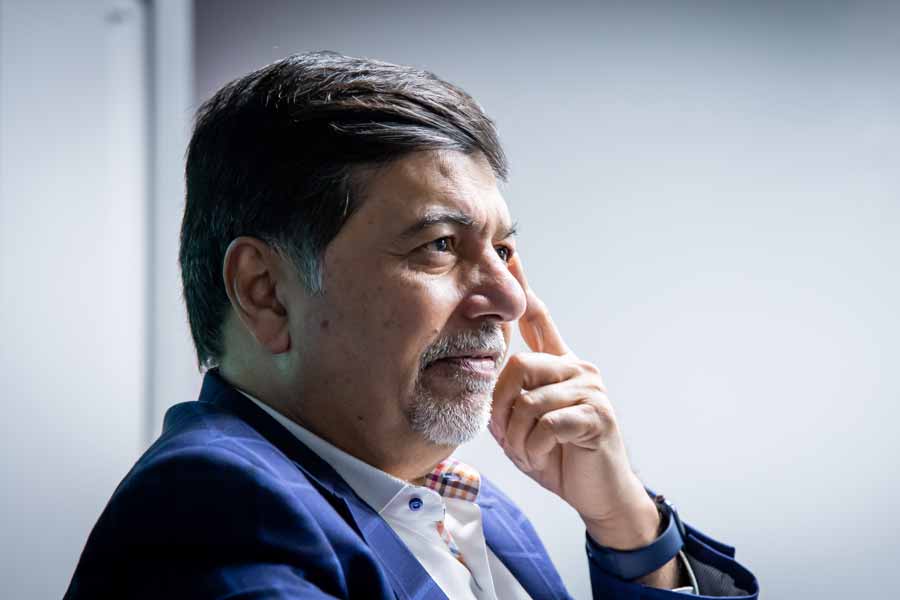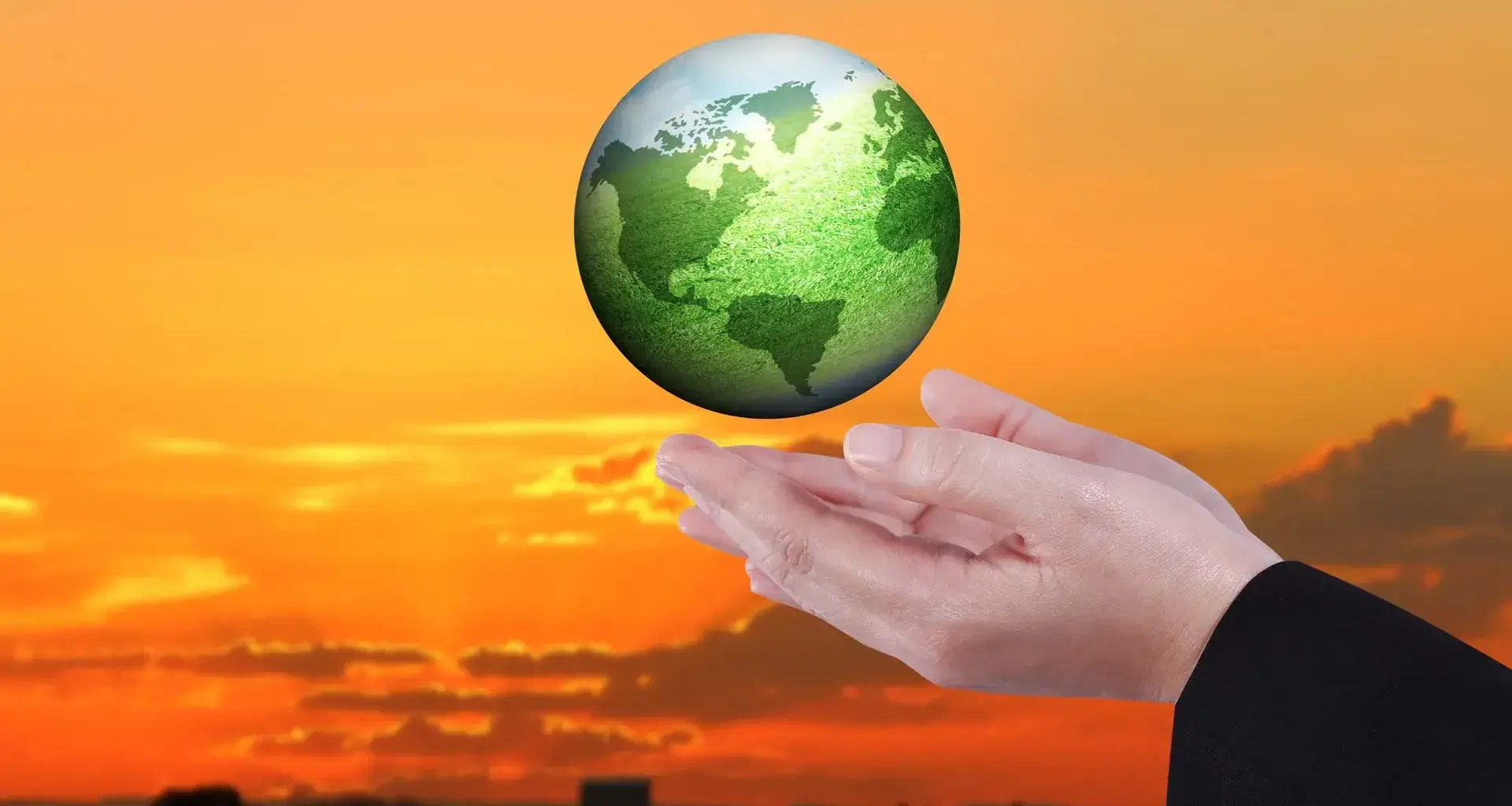Donating companies to social causes could be the future of philanthropy, said Raj Sisodia, the leader of Tec de Monterrey’s Conscious Enterprise Center, in reference to the Patagonia clothing company
A few days ago, company founder Yvon Chouinard announced that he would be donating his company, valued at three billion dollars, maintaining its operations but allocating its profits to tackle climate change.
“When you have a company with clear purpose and values, you can use it as a platform to make a difference,” Sisodia said.
“There’s a clear and pure awareness about its purpose. It’s all about the purpose,” he said.

Could donating companies be the future of philanthropy?
Sisodia said that the case of Patagonia is a step in the right direction, but it can’t be copied by everyone.
“We can’t expect all companies go as far as Patagonia has, but it shows us what a company with principles can do. It’s about finding cost-effective solutions to the world’s problems,” Raj said.
The distinguished Tec professor said that the actions taken by the company are an example of conscious capitalism, a movement in which Raj aims to heal the world through private companies.
“If we analyze conscious capitalism based on different levels of consciousness, Patagonia is at the top. There’s a clear and pure awareness around its purpose,” he said.
“This isn’t a business with a mission, but a mission with a business” - Raj Sisodia.
Company Actions to Promote Conscious Capitalism
Sisodia added that although not all companies are able or willing to do what Patagonia has done, there are some actions that can be taken to promote conscious capitalism.
“They can integrate the principles of conscious capitalism; having a higher purpose related to solving people’s real problems on the planet, whilst at the same time not contributing to those problems.
“We are identifying the way we want to serve people, including society, the planet, and customers.”
Raj also said that companies can focus on helping, not only with financial issues, but also physical, emotional, and intellectual ones, among others.
“Now that we know the impact it has, we also know our responsibility. We know exactly what the consequences of our actions are, so we must take responsibility for them.
“We must start leading and managing our businesses in a conscious way.”

Donating Patagonia to a social cause
In mid-September 2022, Patagonia transformed its business model based on its purpose.
Instead of generating wealth for investors, it will donate the money from its profits to help the world to tackle climate change and to defend nature.
“Each year, the money we make after reinvesting in the business will be distributed as a dividend to help fight the crisis,” it said in a statement.
The family, which owns the company, transferred the property, valued at about three billion dollars, to a trust without receiving a tax benefit.
In addition, they transferred their voting stock to an entity in charge of the continuity of the company and to the donation of the profits generated by the company.
“Patagonia is a profitable and successful company, but everything is for a purpose. In most companies that purpose is to make money. However, at Patagonia, people, clients, and even the profits serve the purpose of the organization.
“This isn’t a business with a mission, but a mission with a business that’s built to help save the planet,” Raj said.
The Tec professor said that actions such as those by 83-year-old Chouinard can inspire other companies to find a purpose through conscious capitalism, generate value for their people, and create a vision to heal the world with private companies.
Patagonia and its purpose of helping the world
Raj talks about how Yvon found a purpose when he opened his company, which makes tools for climbers, realizing that he could help lessen the effects of pollution generated by its processes and products.
“Yvon was manufacturing equipment to help mountaineers climb, such as pickaxes or hammers, but he realized that they were affecting the environment. His products were being left behind by climbers and were sometimes causing erosion,” says Raj.
That’s when Chouinard turned his company around by offering clothing and accessories for the outdoors, but with the aim of reducing its impact on the environment and also supporting the social cause of fighting the climate crisis.
“Patagonia’s vision is not to harm the environment. Over time, climate change has become a serious and growing problem, so they publicly committed themselves to the cause,” said Sisodia.
Some of the actions carried out by Patagonia included not only Chouinard’s company but also companies that they are associated with such as Walmart.
“Patagonia is a well-known company, but it isn’t a huge company. Yvon Chouinard said that if he could make those big companies change, even a little bit, it would make a big difference in the world.
“He has always had that vision. Not just as a leader of a company, but as a leader of a movement,” says Raj.

The need for a Copernican revolution that puts people at the center
Raj spoke about leadership and the necessity of taking responsibility for important social issues like the climate crisis.
According to a UN report, 75% of terrestrial ecosystems and 66% of marine ecosystems have been seriously altered, while the population has multiplied and pollution is rising, as is the world’s temperature.
Sisodia said that a Copernican revolution is necessary, alluding to Nicolaus Copernicus, one of the men who claimed that the Earth was not the center of the universe, but part of a larger system.
“We need a Copernican revolution in the way we do business. We’ve put profits at the center as if they were the center of the universe, with the people, other species, and nature around it.
“That needs to change because we’re destroying our ecosystems and the planet. We need to put the lives of people and other species at the center. People can’t flourish in a world that is withering,” concludes Sisodia.
“People can’t flourish in a world that is withering.”
READ MORE:





